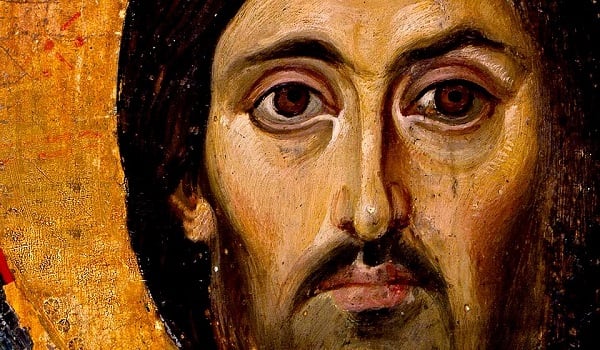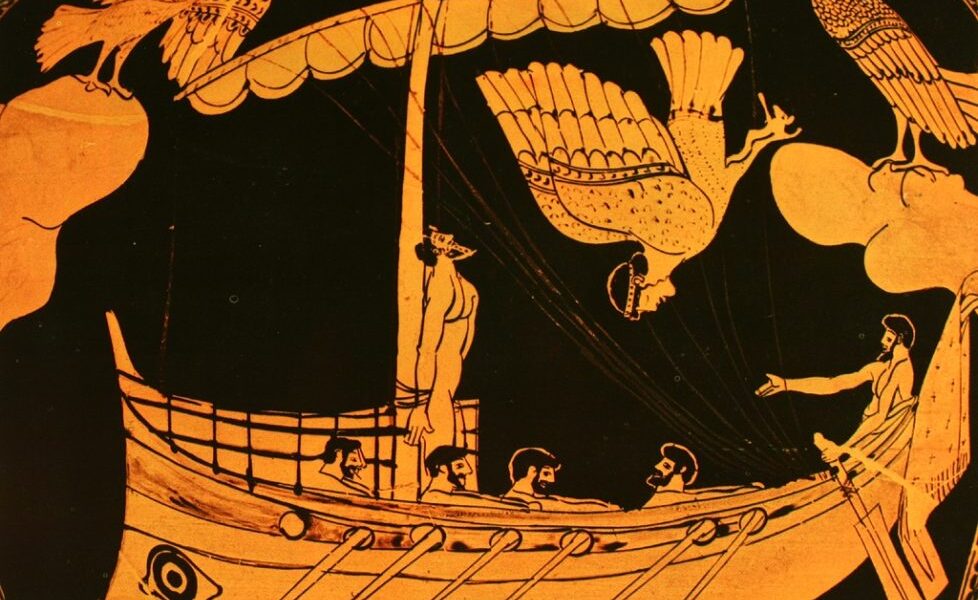
Often, when one introduces themselves as a theologian, there is a sort of numb reaction that ends either in a big “wow!” or a small “oh!”. In both cases, what we get is the typical response of post/modernity with regards to theology, that is, a response of awkwardness. After all, the hierophanics* of postmodern techno-science replaced the hierophanics of modern politics, which in turn had replaced the hierophanics of medieval theology in the first instance. Nevertheless, modern Orthodox theology has been on its own odyssey, forming its own life-story, so to speak, throughout modernity; a life-story full of ups and downs or, perhaps better, twists and turns.
What follows, is not an exploration of modern Orthodox theological trends or movements but rather a survey of the social spaces of theology, that is, of where and how modern Orthodox theology is pursued; two aspects which, by necessity, reflect and produce certain types of theology. To be sure, these spaces can be ascribed to any kind of Christian theology – to say the least – but in the case of modern Orthodox theology they are quite telling as to the transmutations that have been taking place regarding the gist of theology.
Academic Theology
Traditionally, in the Orthodox world there was no such thing as academic theology. The latter originated in Western Europe and was adopted, as well as adapted, by Orthodoxy rather recently – informally sometime after the Fall of Constantinople and formally from the 18th century onwards. This, of course, doesn’t mean that the Orthodox Church was devoid of a rigorous study of its own tradition based on the latter’s textual and other witnesses, but it does mean that such a study took on a systematic, disciplined and rather uniform character. The end result was what one would dub a sanitised academic theology and, surprisingly, a de facto unified Christianity in the guise of a shared theological methodology and epistemology.

Although sanitised, that is, allegedly pure of any questionable premodern preconceptions and thus thoroughly ‘scientific’, academic Orthodox theology has proved quite useful in its own right. Either in the form of meta-theology – let’s say, critical theology – or in the form of theological groundwork – from the perspective of a variety of disciplines – academic Orthodox theology has been offering lots of important information that can potentially inform the relevance of theologising. This, however, is impossible to take place via the outdated curricula of tertiary theological institutions nor can it come to fruition without a proper resolution of theology’s comeback to the academy. In other words, academic theology still hasn’t been able to answer the following questions: What exactly can I contribute to the contemporary academic community? Do I really have something to offer?
Pulpit Theology
Nowadays, the ministers of the Word are more often than not, students of academic theology; those who produce modern Orthodox pulpit theology have been trained in the most rigorous theological disciplines. Paradoxically, though, pulpit theology remains so premodern in its discourse and/or thematics, and although it does have a substantial audience, the latter is in receipt of kerygmatic** materials that haven’t got any true socio-historical relevance. The modern Orthodox kerygma (sermon) sounds traditionalist, moralistic, nationalistic or fundamentalist and is simply a regurgitation of scriptural materials or cultural conventions. But ultimately, all this does have an explanation: in many respects this type of theology – a modern Orthodox theology that should have been a tour de force in the life of the Church – constitutes a side-effect of academic theology.

Modern Orthodox pulpit theology lends itself to a psychodynamic approach. More specifically, it is the Orthodox theologians themselves who unwittingly testify to the ecclesial dysfunctionality of academic theology. The latter, notwithstanding all its usefulness, is a theology only by association with or by default of real theology; to put it differently, it cannot fulfil on its own the role of theology – adequately or properly. Thus, a huge gap appears between the theory of one’s studies and their everyday Church pastoral praxis; a gap that signifies also a fundamental theological lack. That’s why we come across clerics-theologians that think along the lines of a Zizioulas for example, who preach like peasants; they cannot do otherwise, for sadly their training does not provide an alternative…
Social Media Theology
This is where things get really out of control. Discontent – conscious or unconscious – with academic theology and boredom stemming from pulpit Orthodoxy have laid the foundations for the proliferation of a phenomenon I would like to call social media theology. Because academia does not allow for proper theology and because the pulpit offers a caricature of theology, both theologians and other ‘thinkers’ find consolation and relief in social media platforms that ‘promise’ empowerment by enabling them – at last – to articulate a theological voice. But, for good or ill, everyone deserves, demands and acquires such a voice, leading thus to the creation of a modern Babel of Orthodoxy, where everyone talks about everything; where criticism abounds without any sense of responsibility; where anti-clericalism is self-evident, justified and expected; and where all sorts of ‘saviours’– from mentally disturbed to egotistical to presumptuous – give advice, put forward plans and outline policies.
Under certain conditions and limitations, of course, no one could object that social media can facilitate an advancement in the cultivation of the theological consciousness of the Orthodox Church. However, such conditions and limitations are not in place; I mean, the users of social media for theological purposes do not seem to be aware of any conditions or to impose upon themselves any limitations. They talk about everything with everyone at any given situation; no discernment at all! But that is not the only or even the biggest problem. I think that the greatest challenge that social media pose to modern Orthodox theology is the undermining – if not the displacement – of the parameters of theologising: nowadays online theology has totally remapped the Church landscape, so to speak, that traditionally conditioned theology: the episcopate, jurisdiction, pastoral priorities, etc. What we are left with is … a Churchless Church!
Politically Correct Theology
Last but not least, there is another social space of modern Orthodox theology where the interpretative appropriation of tradition takes on a rather insidious character. In particular, it’s becoming more and more trendy nowadays to have academic theologians who are frustrated by the administrative apparatus of the Church, to seek ways of expression and acceptance as public intellectuals. Given the substantial historical connection between the post/modern socio-political agenda and the meta-Christian secular sensitivities of the ‘Western’ world it’s in many ways expedient to present the conceptual legacy of theology in politically correct terms and thus market it as one more backup of the systemic priorities of the day. And it’s not hard to see how much ideological in nature such a transmutation of the Orthodox theological tradition is.
This transmutation would not have been so much of an issue, to be honest; after all, absolutist claims of theology can easily turn into an ideological straitjacket. However, the disconcerting thing with this development is the appropriation of tradition for the making of public policy or rather the reduction of Orthodox theology to a set of handy agenda propositions. It’s one thing for theology to be contextual, engaged and relevant and quite another, I reckon, to become the gist of contemporary expectations and sensibilities. Moreover, a peculiar witch-hunting has started taking place in broader theological-ecclesiastical circles when someone dares to challenge or disagree with taken-for-granted principles – not to say anything about the eventual undermining of the criteria of theologising…
In Anticipation of the Spirit
Well, what can be done? What is the future of genuine Orthodox theology in our post/modern circumstances? This is not an easy question for many reasons, but more importantly because any answer could easily become a new trap. Nevertheless, I would risk the following proposition:
Modern Orthodox theology must flourish beyond academia and Church walls, making thus public space venues its dwelling place. As for those serving theology, apart from producing theological discourse, they must have a deep sense of charisma and an ethos of diakonia (service to others); and above all, they should take on the biggest issue of our times, namely, the question of human freedom and always keep in mind that theology is not any kind of God-talk but one that creates history. As for the rest… that’s God’s business!

* A hierophany is a manifestation of the sacred. The word is a formation of the Greek adjective hieros (Greek: ἱερός, 'sacred, holy') and the verb phainein (φαίνειν, 'to reveal, to bring to light'). The word hierophany was coined by the philosopher Mircea Eliade in his work Treatise on the History of Religions to refer to an awareness of the sacred when it manifests itself through various parts of our regular cosmos: a mountain, a forest, a river, etc.
**The descriptive term “kerygmatic” comes from the Greek word kerygma, meaning to preach or proclaim.
ABOUT | INSIGHTS INTO GLOBAL ORTHODOXY with Dr Vassilis Adrahtas
"Insights into Global Orthodoxy" is a weekly column that features opinion articles that on the one hand capture the pulse of global Orthodoxy from the perspective of local sensitivities, needs and/or limitations, and on the other hand delve into the local pragmatics and significance of Orthodoxy in light of global trends and prerogatives.
Dr Vassilis Adrahtas holds a PhD in Studies in Religion (USyd) and a PhD in the Sociology of Religion (Panteion). He has taught at several universities in Australia and overseas. Since 2015 he has been teaching ancient Greek Religion and Myth at the University of New South Wales and Islamic Studies at Western Sydney University. He has published ten books. He has extensive experience in the print media as editor-in-chief, and columnist, and for a while he worked as a radio producer. He lives in Sydney, Australia, his birthplace.


